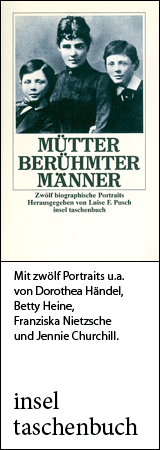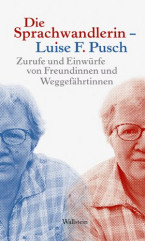(Esther Duflo)
Born 25 October 1972 in Paris
French-American developmental economist, winner of Nobel Prize in Economic Sciences, 2019
Biography • Quotes • Literature & Sources
Biography
If ever there was a shooting star in the field of economics, it must be Esther Duflo. By the age of 46 she had won practically every economics award there is, including the MacArthur “genius grant” and – in 2019 – the Nobel Prize (together with her husband and MIT colleague Abhijit Banerjee and Michael Kremer of Harvard). Duflo is the youngest economics laureate ever and only the second woman to receive this prize (the other being the US American Elinor Ostrom in 2009). The originality of Duflo’s thought is matched by indefatigable energy and an underlying commitment to improving conditions world-wide. She and her colleagues are credited with revolutionizing the field of developmental economics, which seeks to understand and remediate the causes of poverty around the world. Their groundbreaking innovation was to apply the scientific method – familiar from medicine – of randomized trials to evaluate various efforts to alleviate poverty and its associated problems. This approach allowed them to show that micro-loans did not universally result in an improvement in wages, for example, or to find out how best to improve children’s learning in village schools. Together with Banerjee, Duflo has made such groundbreaking research widely accessible through numerous publications, including two best-selling books, Poor Economics (2011) and Good Economics for Hard Times (2019). Equally important, she co-founded (in 2003) and currently co-directs MIT’s Abdul Latif Jameel Poverty Action Lab (J-PAL), which has put theory into practice in countless projects around the world.
The daughter of a doctor and a mathematics professor, Duflo was encouraged to be independent as a child: by the age of five she would travel alone by train from her home west of Paris to visit a cousin who lived nearer the city. As she later observed, “I was not very willing to let anybody interfere with my plans.” (Parker) Duflo’s pediatrician mother, who spent part of each year abroad treating child victims of war, instilled in her daughter an early concern with the welfare of others. Duflo was admitted to the prestigious École Normale Supérieure, where she began studies in history and economics. In 1993 she spent 10 months in Moscow, teaching French and working on a history thesis. While there, she also worked as a research assistant for a French economist and for the US economist Jeffrey Sachs, and began to see that “economics had potential as a lever of action in the world.” (Parker)
After finishing her degree Duflo went on to M.I.T., where she encountered the field of developmental economics for the first time, in classes with Abhijit Banerjee, whom she later married. Her doctoral dissertation utilized earlier data to prove, for the first time for a developing country (Indonesia), that education resulted in higher wages. Her work was so impressive that she was offered a job in almost every first-rate economics department in the US; M.I.T. even went against its usual policy of not hiring its own graduates to appoint her assistant professor.
Adopting an approach first tried by the young M.I.T. professor Michael Kremer, Duflo began devising randomized experiments to test various hypotheses and practices in developing countries, especially India and Kenya. She travelled from village to village, for example, to test whether Indian villagers could be persuaded to accept female leadership through education – via dramatic presentations with positive ideas about women leaders – or whether they had to have already experienced a woman village leader in order to imagine one. Another experiment found that parents could be motivated to have their children immunized through small incentives and a convenient clinical opportunity. Similarly, farmers could be incentivized to purchase fertilizer for the next season before they spent the money earned from their crops, leading to a much more productive harvest the following year.
The work of Duflo and her colleagues at the Poverty Action Lab has expanded upon such experiments around the world, partnering with governments, NGOs and donors to conduct research, measure impacts, devise and scale up programs in the global fight against poverty. As the website states, “Our mission is to reduce poverty by ensuring that policy is informed by scientific evidence. We do this through research, policy outreach, and training.” Currently (2020), J-PAL affiliated researchers have 1044 ongoing and completed randomized evaluations in 89 countries. J-PAL’s new Gender and Economic Agency Initiative (GEA), for example, funded by the Bill and Melinda Gates Foundation, aims to build a strong body of evidence on policies and programs to promote women’s work and enhance women’s economic agency in East Africa and South Asia.
Author: Joey Horsley
Quotes
Duflo said she hoped her Nobel prize would inspire women: “Showing that it is possible for a woman to succeed and be recognized for success I hope is going to inspire many, many other women to continue working and many other men to give them the respect that they deserve like every single human being.” (“Nobel economics prize winner: I want to inspire women.” BBC News 14 Oct. 2019)
She hopes the award will show women that economics “is not just about wearing ties and suits, and thinking about the macro economy and finance. It can be about changing the world - making the world a better place”. (Esther Duflo: 'Nobel Prize will be a megaphone' BBC News. 15 October 2019.)
Literature & Sources
Banerjee, Abhijit V.; Duflo, Esther (2011). Poor Economics: A Radical Rethinking of the Way to Fight Global Poverty. New York: PublicAffairs. ISBN 9781610390408.
Banerjee, Abhijit V.; Duflo, Esther (2019). Good Economics for Hard Times: Better Answers to Our Biggest Problems. PublicAffairs. ISBN 978-1-61039-950-0.
Cowan, Tyler. “Esther Duflo on Management, Growth and Research in Action.” Interview. Conversations with Tyler. Episode 82. December 18, 2019.
“Esther Duflo: 'Nobel Prize will be a megaphone.'” BBC News. 15 October 2019.
Esther Duflo. Wikipedia.
“Nobel economics prize winner: I want to inspire women.” BBC News 14 Oct. 2019
Parker, Ian. “The Poverty Lab: Transforming development economics, one experiment at a time.” May 10, 2010. The New Yorker. Profiles, May 17, 2010 issue.
The Poverty Action Lab (website of Abdul Latif Jameel Poverty Action Lab at M.I.T.)
If you hold the rights to one or more of the images on this page and object to its/their appearance here, please contact Fembio.



